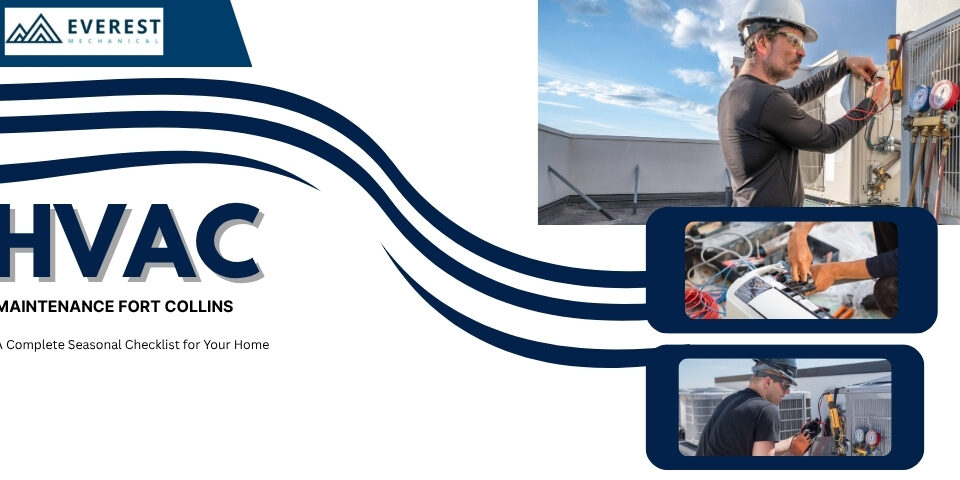- Servicing areas in and around: Estes Park, Longmont, Boulder, Arvada, Fort Collins, Denver, Loveland, and Lyons
- 8883880970
Why Humidity Control Matters in Colorado Homes

Essential AC Maintenance Tips for a Cool Colorado Summer
March 27, 2025
Top Signs Your Longmont Home Needs Drain Cleaning
April 24, 2025Colorado’s breathtaking mountain landscapes and wide seasonal variations make it an ideal place to live — but they also present unique challenges for maintaining indoor comfort. One of the most overlooked yet critical aspects of home comfort is humidity control.
Unlike coastal or humid regions, Colorado’s dry climate — especially in areas like Denver, Boulder, Fort Collins, and the mountain towns — can cause a range of problems if not properly managed. Whether it’s winter dryness or summer imbalances, keeping the right indoor humidity level is essential for your health, home, and HVAC system.

In this post, we’ll explore why humidity control matters and how Colorado homeowners can take simple steps to improve their indoor air quality and comfort year-round.
1. Dry Air is a Year-Round Problem in Colorado
Colorado is known for its low relative humidity, especially during the winter months. When your heating system runs, it further dries out the air, often bringing indoor humidity levels below 20% — well below the recommended range of 30% to 50%.
Common Signs of Dry Indoor Air:
- Dry skin, lips, and eyes
- Increased static electricity
- Cracking wood floors or furniture
- Irritated sinuses or respiratory discomfort
2. Low Humidity Can Impact Your Health
Dry indoor air doesn’t just make you uncomfortable — it can also lead to health problems. Your respiratory system relies on moisture to filter out allergens and particles. When the air is too dry:
- Your sinuses can dry out and become irritated
- Asthma and allergy symptoms may worsen
- Viruses like the flu thrive in dry environments
Adding humidification to your home — through a whole-house humidifier or portable units — can reduce illness and improve your overall well-being.
3. Proper Humidity Helps Your Home Last Longer
Colorado’s dry air can also take a toll on your home. Wood floors, furniture, and even drywall can crack or shrink without enough moisture. Over time, this leads to costly repairs and premature wear.
A properly humidified home:
- Reduces wood warping or splitting
- Protects musical instruments and artwork
- Prevents paint and wallpaper from peeling
4. Humidity Control Improves Energy Efficiency
Did you know that humid air feels warmer than dry air? That means you can feel comfortable at lower thermostat settings in the winter if your humidity is balanced.
Energy benefits of maintaining ideal humidity:
- Lower heating costs during the winter
- Improved HVAC performance and less wear
- Avoid overusing heaters or space heaters to “compensate” for dryness
Smart humidity control can even be integrated with your HVAC system using smart thermostats or built-in humidistats.
5. Colorado Summers Need Dehumidification, Too
While Colorado is generally dry, summer monsoon seasons and modern airtight home designs can lead to localized humidity spikes. Basements, bathrooms, and kitchens can all become too humid, especially in cities like Fort Collins or Colorado Springs.
Signs you may need dehumidification:
- Musty odors or visible mold
- Condensation on windows
- Allergies flaring up indoors
Using a dehumidifier in problem areas — or upgrading to an HVAC system with humidity control — can keep your indoor air quality healthy and mold-free.
6. Best Humidity Control Solutions for Colorado Homes
Here are a few effective solutions for balancing humidity in your home:
- Whole-House Humidifiers: Installed directly into your HVAC system
- Smart Thermostats with Humidity Sensors: Adjust comfort settings automatically
- Portable Humidifiers/Dehumidifiers: Useful for single rooms or short-term use
- Ventilation Upgrades: Helps regulate moisture buildup in newer, sealed homes
Managing humidity may not be the first thing you think about when optimizing home comfort, but in Colorado’s dry and varied climate, it’s essential. From protecting your health to preserving your home and improving energy efficiency, humidity control is a small upgrade that delivers big results.
If you’re experiencing discomfort or noticing signs of poor humidity balance, it might be time to consult with a local HVAC expert about the right humidity control solutions for your Colorado home.




